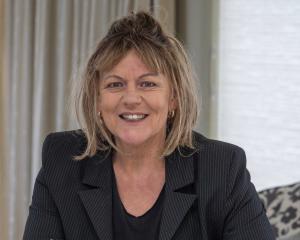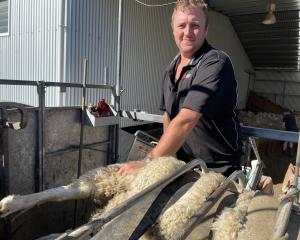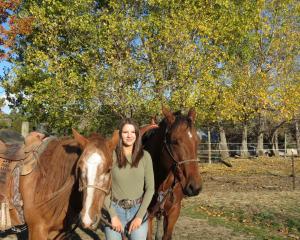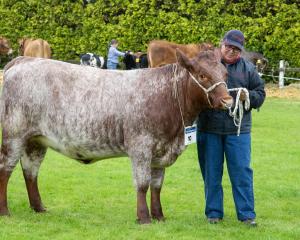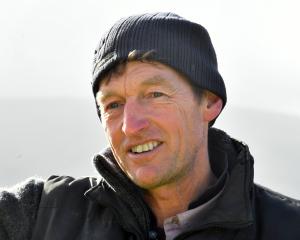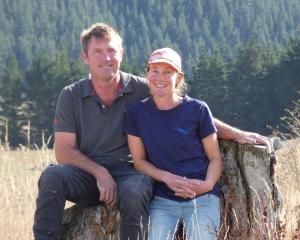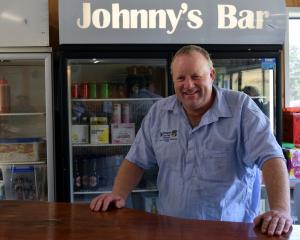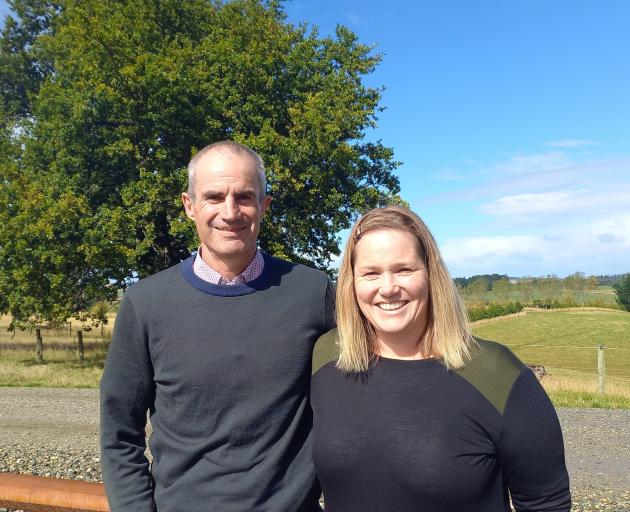
Their involvement began as the Otago regional winners and, from there, Mr McAtamney went on to chair the regional organising committee and to be a judge, while Mrs McAtamney has been the Otago co-ordinator for 12 years.
This year marks 20 years of the awards programme in Otago, and the awards function in Dunedin on April 12 will acknowledge those who have been involved over the years, as well as celebrate this year’s finalists.
Former winners, including inaugural winner deer industry leader Clive Jermy, will be attending.
It was 2007 when the McAtamney family were named supreme Otago winners and also picked up the livestock award. At the time, judges commented how they were impressed with the consistent stock performance achieved on the farm, the family’s use of benchmarking and monitoring and their focus on keeping the farm both environmentally and economically sustainable.
Mrs McAtamney said it had happened the same year as the Clutha Sheep Farmer of the Year, which they had been asked to enter. The call came for the family to also enter the BFEA competition.
As now, the sheep farming industry was very flat, but Mr McAtamney thought they were "doing OK", so it was an opportunity to do something positive for the sheep industry while also putting themselves "out there".
Mrs McAtamney hoped they would win the livestock award, and they were delighted to win that — let alone the supreme award.
They were farming in partnership then with Mr McAtamney’s father Terry who, now aged 83, still lives on the 540ha farm at Puketi, near Clydevale.
The property, which was a monitor farm in the mid to late 1990s, runs predominantly sheep, with a handful of trading cattle.
When it came to attracting entrants for the awards, a common comment was "I’m not ready".
"What I always say to them ... everybody’s got that list of all the things they need to do. Part of the awards is showing you’re planning all that stuff, that’s where you want to head," Mrs McAtamney said.
The best part of the judging process was the feedback and advice given by the judges who visited each property, which was free.
For Mrs McAtamney, the biggest thing about being involved in co-ordinating the awards had been the inspirational people that she met through the process. Whether those were the committee, judges or winners, it was nice dealing with them.
The role initially appealed as she was able to do it from home. Getting the right people involved had been key.
Some of those on the committee had been there from the inception.
The main part of her job was the awards dinner. There was also the organisation involved with the field day held at the winner’s property.
Mrs McAtamney grew up in Roxburgh, where her parents operated a poultry farm. She completed a national diploma in business studies at Otago Polytechnic and then studied to be a secondary school teacher at Christchurch Teachers College, training in business administration and computing.
She taught at St Kevin’s College in Oamaru for four and a-half years before travelling and teaching overseas for 18 months. On her return, she became programme manager of business administration and computing at the Southern Institute of Technology.
After meeting her future husband, she moved to South Otago and quickly became immersed in the Clutha Valley community, particularly in "all kid things" following the arrival of the couple’s two children, Fraser and Gemma.
Fraser is now studying science at university and Gemma is in her last year at South Otago High School.
However, community involvement had not waned for the couple.
Mrs McAtamney is also co-ordinator for the Otago Catchment Community, involved with Otago South River Care, has a role in the South Otago Theatrical Society’s upcoming production of Blackadder Goes Forth, sometimes works at Clutha Valley School and helps out at South Otago High School, where she is on a fundraising committee for a netball trip to Australia.
Mr McAtamney, who has previously been involved with Federated Farmers meat and fibre section, is treasurer of the Clutha Valley Rugby Club and a member of Clutha Valley Lions.
He is also in his first term as a councillor on the Clutha District Council, a role he described as more interesting and challenging than expected.
The couple said Clutha Valley was a great community to be part of, and stressed they were just one of many couples who contributed to the area.
After leaving school, Mr McAtamney completed a commerce degree in agriculture at Lincoln University before returning to the family farm, which was bought in 1954. He still enjoyed the challenge of sheep farming "even this year ... trying to somehow scrape your way through".
He was fairly relaxed about the state of the industry, saying "it’ll turn and it’ll turn suddenly".
"What I’ve learned [is] just like economists never pick the downturn, they never pick the upturn. Experts are very good at explaining what has happened in hindsight — that’s especially true in the sheep industry."
He remained positive, adding when things were down, they could only go up.
But he also acknowledged the downstream effects and impacts on communities and towns from the ramifications of farmers tightening spending.
In the environmental space, the McAtamney family had done many plantings over the years. Recently they switched from plantations to native plants — trying to do one planting a year over the past decade in wetlands or for shelter.
They sought to keep their farming system as simple as possible.
Direct drilling meant no cultivation, and they did not make any supplements, instead break-feeding.


